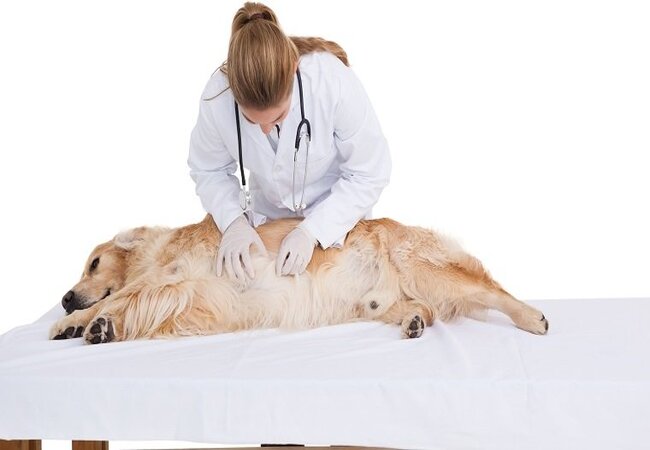Upset Stomach in Dogs: Veterinary Insights & Care Tips 2025 🩺🐾

In this article
Upset Stomach in Dogs: Veterinary Insights & Care Tips 2025 🩺🐾
By Dr. Duncan Houston BVSc
Hi there! I’m Dr Duncan Houston BVSc, veterinarian and founder of Ask A Vet. In this 2025 pet wellness series, we’re diving deep into one of the most common concerns dog owners face—an **upset stomach**. Whether your pup has occasional tummy troubles or persistent digestive issues, this comprehensive guide is equipped with professional advice, practical home tips, and when to seek expert care. We’ll also spotlight how Ask A Vet, can help simplify your pet’s stomach health routine. Let’s get started! 💙🐶
1. Understanding “Upset Stomach” in Dogs 🤔
“Upset stomach” is a general term for various digestive disturbances in dogs—most notably vomiting and diarrhea. Though symptoms vary in severity, the underlying causes range widely:
- Minor dietary indiscretions (new food, human scraps, fast eating)
- Infections: bacterial, viral, or parasitic
- Inflammatory or chronic conditions: IBD, gastritis, pancreatitis
- Obstructions: foreign bodies, tumors, bloat (GDV)
- Toxins: human foods (chocolate, xylitol), plants, meds
Puppies and senior dogs are especially vulnerable due to weaker immunity , so age is an important part of assessment.
2. Recognizing the Signs 🕵️♂️
Does your pup have a sensitive stomach? Watch for:
- Vomiting (especially repeated or bloody)
- Diarrhea, with or without blood/mucus
- Lethargy, dehydration, increased thirst
- Loss of appetite or refusal to eat
- Abdominal pain, bloating, distention
- Unusual burping, lip-licking—suggestive of reflux or bile irritation
- Changes in stool (black, tarry = possible GI bleed)
3. Common Causes Explained 🔍
3.1 Dietary Factors & Mild Upsets
Simple reasons include:
- Sudden diet change or new treats
- Overeating or fast consumption
- Table scraps or foods dogs shouldn’t eat
- Eating inappropriate things—like trash or toys
3.2 Infections & Parasites
Include gastroenteritis caused by bacteria, viruses, or parasites like Giardia. Symptoms can escalate quickly.
3.3 Inflammatory & Chronic GI Conditions
Conditions such as IBD and gastritis cause recurring digestive issues like vomiting and diarrhea.
3.4 Pancreatic & Organ Issues
Pancreatitis often presents with vomiting, lethargy, and abdominal pain. Liver or kidney disease can also cause GI upset.
3.5 Obstructions & Bloat
Foreign objects or life-threatening conditions like GDV (“bloat”) can cause distention, pain, retching, and collapse—these are emergencies.
3.6 Toxins & Poisoning
Common culprits include:
- Chocolate, xylitol, grapes, certain plants, or medications
- Household chemicals or human meds like ibuprofen
4. Diagnosing an Upset Tummy 🧪
Here’s how a vet determines what’s wrong:
4.1 History & Physical Exam
Expect to be asked about diet changes, toxin exposure, vomiting frequency, stool appearance, and any bloating. Exam checks hydration, abdominal pain, distention, and vitals.
4.2 Diagnostics & Imaging
- Blood tests (CBC, chemistry) to assess dehydration, organ function
- Fecal analysis for parasites/bacteria
- X‑rays or ultrasound to identify foreign bodies, obstructions, or bloat
- Endoscopy or biopsies for chronic conditions
5. Treatment & At‑Home Care 🏡
5.1 Immediate First Aid Measures
- Skip food for 12‑24 hours (only water) for mild upset
- Ensure hydration—offer small amounts of water or electrolyte solution
5.2 Bland Diet Transition
After fasting, introduce a bland meal: boiled white meat chicken or turkey with white rice or cottage cheese.
Add plain canned pumpkin for fiber and Stool support—½ tsp for tiny pups, 1 Tbsp for large dogs.
5.3 Comforting Supplements
Probiotics and digestive enzymes aid gut health—veterinarian-recommended options include formulations like the Pet MD PB6 chews.
5.4 Medical & Prescription Treatments
- Antibiotics for bacterial infections
- Anti‑emetics, antacids or H2 blockers for nausea/reflux
- Anti‑diarrheals, dewormers, probiotics as needed
- IV fluids and hospitalization in severe dehydration or GI obstruction cases
5.5 Chronic Management
For conditions like IBD or gastritis, vets may recommend:
- Special diets (hypoallergenic, low-fat, limited-ingredient)
- Regular medications: corticosteroids, metronidazole, or immunosuppressants
- Routine monitoring for symptom control and adjustment
6. When to Contact the Vet 🚨
Seek veterinary care if you see:
- Frequent or severe vomiting/diarrhea
- Blood or blackness in vomit or stool
- Severe dehydration or repeated vomiting of water
- Distended abdomen, excessive drooling, retching without vomiting (GDV suspicion)
- Change in mentation, collapse, or inability to keep water down
7. Prevention Tips 🛡️
- Introduce new foods/treats gradually
- Avoid table scraps and known dangerous items
- Feed scheduled meals, slow feeders for gulpers
- Keep non-food items out of reach
- Apply parasite prevention and vaccinations to reduce infection risk
- For at-risk breeds, consider gastropexy to prevent bloat
8. Brand-Integrated Support 💡
- Ask A Vet: Telehealth consults, guided care plans, blister pack reminders.
9. Case Examples & Home Routine 🗓️
Case 1: Bailey, a 4-year-old terrier, ate scrambled eggs from the counter. Vomited twice. Managed at home with 12‑hr fast → bland diet → probiotics. Resolved in 48 hours.
Case 2: Max, a senior Lab, experienced chronic diarrhea and weight loss. Diagnosed with IBD. Now on a special diet, corticosteroids, and monthly monitoring—stable life.
10. Final Thoughts & Takeaways 📝
Most upset stomachs in dogs are mild and manageable at home, but persistent or severe signs indicate serious issues. Use this 2025 vet‑approved guide to:
- Spot early symptoms
- Provide safe home care
- Know when veterinary support is required
- Leverage modern telehealth & supplement options
With proper vigilance and expert support from Ask A Vet, your fur baby has the best chance at fast recovery and long‑term GI health. 💙🐾
If your dog shows persistent symptoms or you’re concerned, schedule a telehealth consult via AskAVet.com and download our app for 24/7 care. 🌟






